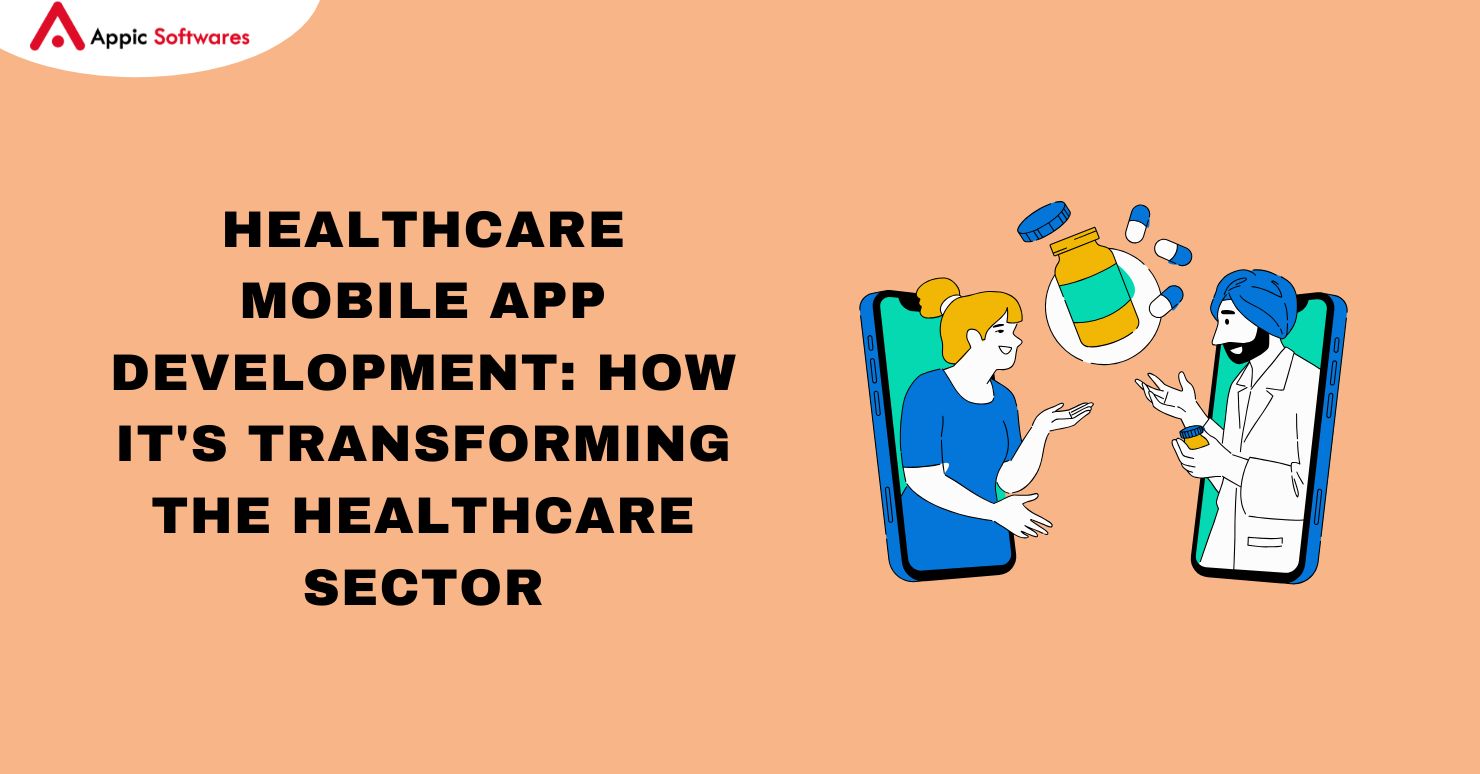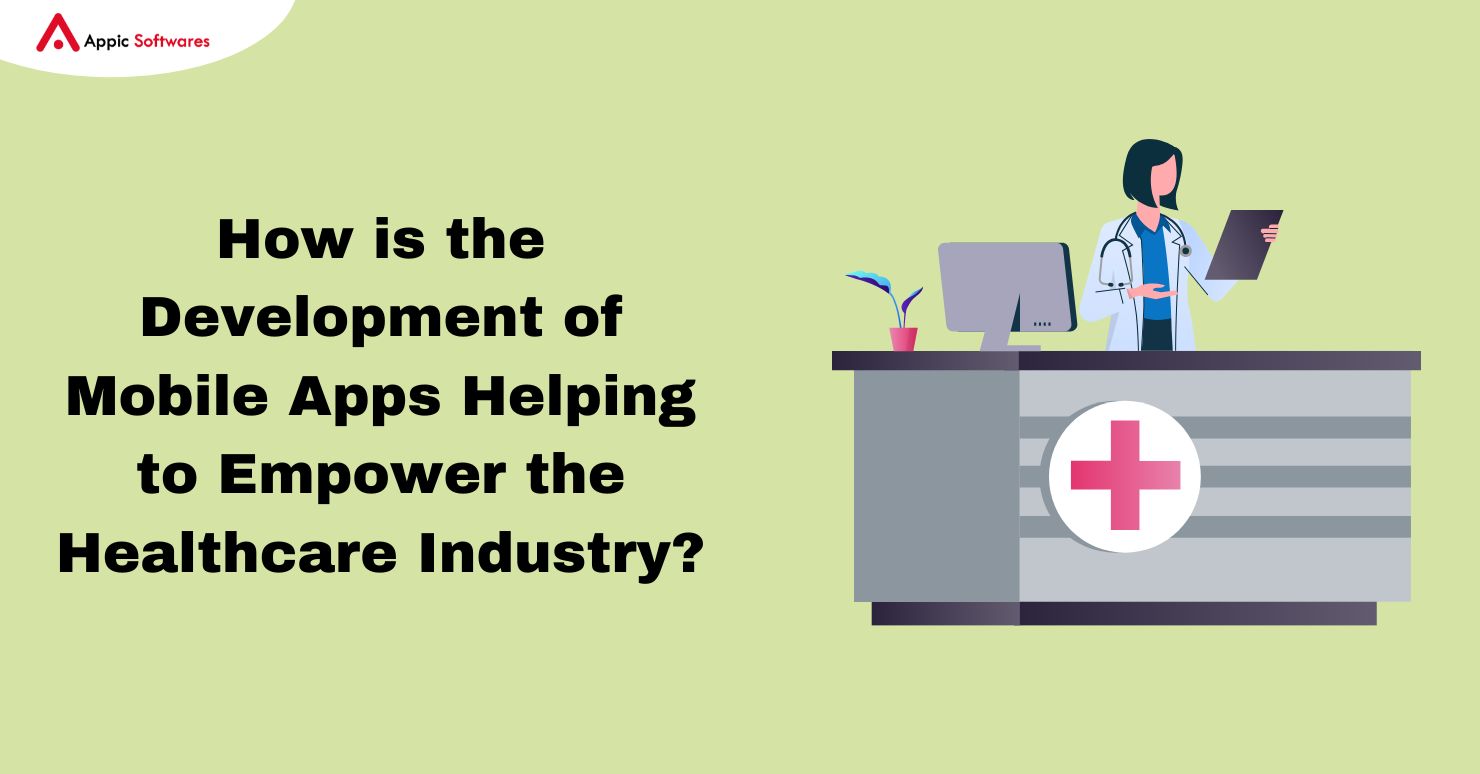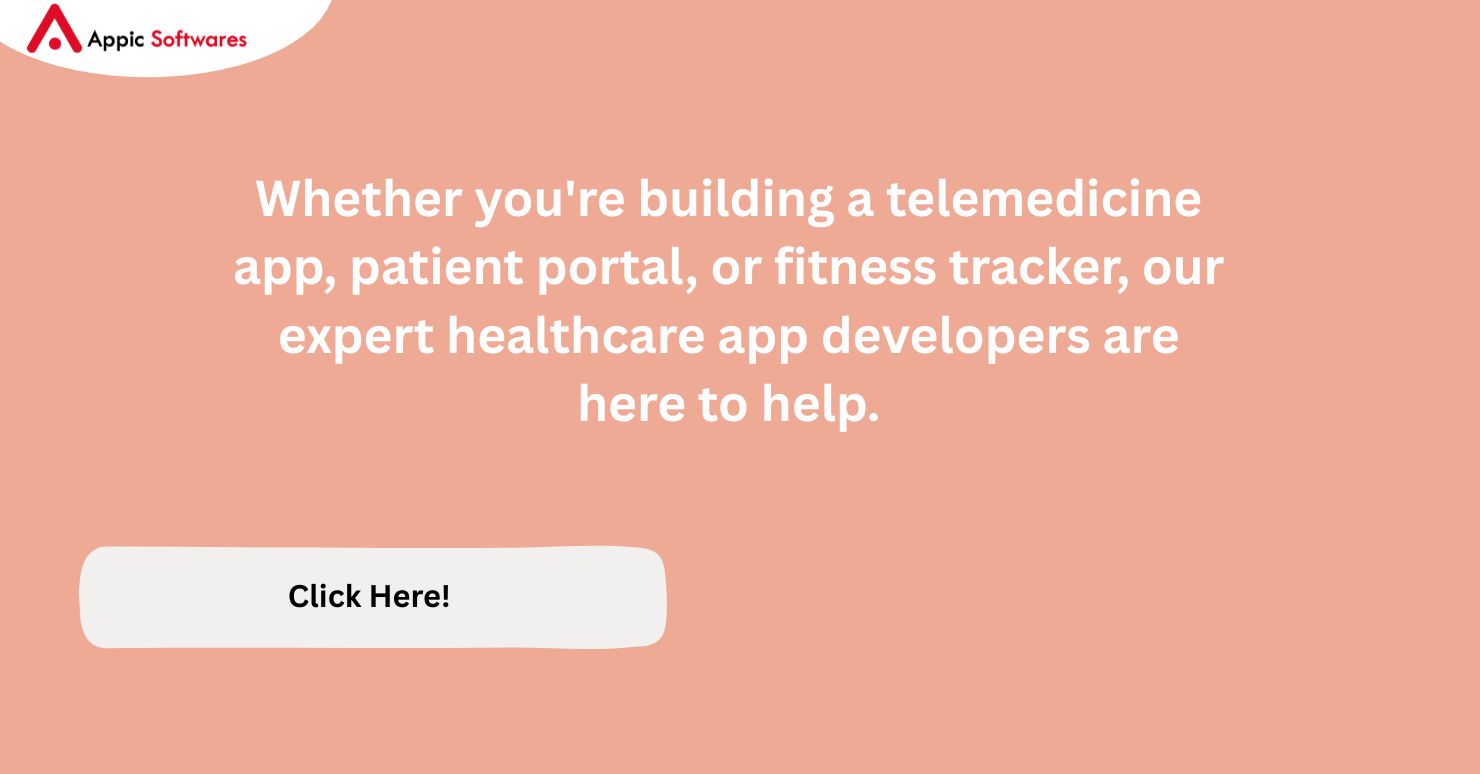
Since the information age began, our reliance on portable electronic devices has steadily increased. Because mobile phones have become such an indispensable part of our lives, we will not stop relying on them. That’s why you a healthcare mobile app development to make money.
This is true in terms of managing our calendars, setting up our work and business procedures, being informed and connected via social media, making doctor visits and healthcare checkups, and a variety of other things. With support from a healthcare software development company, recent developments in medical technology have made the production of mobile applications both a necessity and a luxury.
Changes of substantial magnitude have occurred in the field of healthcare as a direct result of technological advancement and participation. Over the course of the past few years, the development of mobile applications has made a significant contribution to the expansion of the healthcare sector. Even though the COVID-19 outbreak is still going strong, mobile apps in healthcare have opened the door for exceptional app development. This is especially important given the current state of the epidemic. As a result, people all over the world have a different perspective on the healthcare industry.
Perspective, Comprehensive Analysis, and Projection for the Future of the Global Industry
According to the findings of the study titled “Digital Health Market by Component” (Software, Hardware, and Services), “By Technology Digital Health Systems, Tele Healthcare, and Healthcare Analytics,” the digital health market is growing rapidly.
According to Statista, the Google Play store had around 52,565 healthcare applications during the first quarter of the year 2022. In the first three months of 2022, the Apple App Store featured 51,370 healthcare applications designed for Apple’s iOS platform, showing the potential for AI development trends in the industry.
From
2025 to 2030, the global digital health market is predicted to increase at a rate of 22.2% per year, reaching USD 946.04 billion by 2030.
How is the Development of Mobile Apps Helping to Empower the Healthcare Industry?

The emergence of mobile applications has given the healthcare industry a substantial boost by significantly revolutionizing the ways in which healthcare services are provided, managed, and accessed. The following is a list of important ways in which the development of mobile applications has enabled the healthcare industry:
1. Enhanced Patient Engagement
Patients are now able to access their own health information, make appointments, receive customized notifications, and contact with their healthcare professionals through the use of mobile apps. This enhances patient involvement, which ultimately leads to better adherence to treatment programs and better outcomes for the patient’s overall health.
2. Monitoring of Patients from a Distance
The remote monitoring of patients’ vital signs, symptoms, and other health data is made possible via mobile app technology. This is especially helpful in the management of chronic illnesses as well as post-operative care because it lowers the need for numerous in-person visits and assists in the early detection of potential problems. Many of these systems now leverage AI agents in healthcare to improve efficiency
3. Telemedicine and Online Consultations
The proliferation of telemedicine has been made possible by mobile app technology, which enables patients to engage in remote consultations with medical specialists. Access to medical treatment is improved as a result of this, particularly for people who live in underserved or rural locations.
4. Tracking Your Health and Fitness Levels
Users may better monitor their physical activity, food, and sleep patterns with the assistance of mobile health apps. By illuminating users’ health behaviors, this facilitates the adoption of healthy lifestyles and contributes to the reduction of the risk of disease.
5. The Administration of Medication
Apps for mobile devices can be used to provide medication reminders, track medication adherence, and provide information about the interactions and adverse effects of various drugs. Patients are able to better manage their prescription regimens as a result, which also lowers the likelihood of making mistakes.
6. Education and Training in the Medical Field
Apps designed specifically for mobile devices are increasingly being utilized in medical education. These apps give medical professionals access to the most recent medical literature, research, and training tools. This ongoing education contributes to an improvement in the standard of treatment provided to patients and supports initiatives like machine learning in healthcare.
7. The Scheduling and Management of Appointments
Mobile apps make it simpler to book and manage appointments, which in turn reduces the amount of time that patients have to spend waiting in waiting rooms and the quantity of paperwork that they have to do.
8. The Management of Healthcare Information and Records
Patients now have the ability to safely access and manage their electronic health records thanks to mobile apps. This guarantees that continuity of care is maintained while also promoting interoperability among healthcare providers.
9. Treatment Plans Tailored to Your Specific Needs
Apps for mobile devices have the ability to give individualized treatment plans and suggestions based on an individual’s health data, resulting in interventions that are better focused and more successful.
10. Analytics for the Healthcare Industry
Mobile applications make a contribution to the collecting and analysis of large-scale health data, which can then be utilized for the purposes of research, epidemiological studies, and the improvement of public health through insights such as data analytics in healthcare.
11. First Aid and Response to Emergencies
Users of mobile apps have immed
iate access to first aid information and emergency response services, which has the potential to save lives in dangerous situations.
12. Support for One’s Mental Health
By providing resources for mental health, such as meditation guides, tools for stress management, and virtual therapy sessions, mobile applications improve access to mental health support while also reducing the stigma associated with requesting assistance.
What Advantages Do Patients Gain From Mobile Healthcare Applications?
The adoption of digital transformation strategies by a great number of companies is one of the many benefits that have resulted from the COVID issue. By implementing solutions for mobile app development, the healthcare industry has improved its patient-centered strategy. As a result, it is better able to protect patients’ health while also providing a satisfying experience for end users. The development of healthcare applications has been an extremely important factor in providing patients with access to information in a timely manner. More and more clinics are choosing to hire healthcare developers to build these customized solutions.
Mobile applications not only help patients, but they also make it easier for doctors to collect and maintain patients’ private medical information. Patients can immediately input their insurance cards and other information to mobile applications through the use of healthcare mobile apps for patients, which helps healthcare professionals avoid making mistakes in their documentation
How Does the Development of Healthcare Apps Help Doctors and Other Medical Professionals?
Every facet of patient care can be addressed with mobile app development, whether it be an emergency response, health surveillance, the maintenance of patient records, clinical documentation, treatment monitoring, or the guaranteeing of direct touch-points with patients on a regular basis. Additionally, for early-stage solutions, many healthcare startups begin with a no-code MVP to test their product with real users.
When it comes to managing urgent situations, medical care that makes use of mobile app services can be significantly more effective. The mobile app for health provides physicians with notifications on urgent situations and transmits all of the pertinent information to the physician’s device as quickly as is practicable.
Different Categories of Mobile Healthcare Applications
There are a variety of healthcare applications currently available on the market, and a great number of apps are being produced and introduced on a daily basis. Apps for patients, apps for healthcare facilities, and apps for those working in the medical profession are some of the categories that can be used to classify these healthcare applications.
The following categories of mobile applications are examples of those that have potential uses in the medical field:
Applications for Medical Research and Information
The information included in medical references, databases, and other resources, such as drug information, medical dictionaries, and symptom checks, can be accessed through the use of these types of healthcare apps.
Applications for Telemedicine
Patients are able to consult with their healthcare practitioners remotely using these apps, which can be very helpful for people who reside in remote places or who have trouble traveling. Video conferencing and other digital means are two examples of how this can be accomplished.
Read more: Building A White Label Telemedicine App
Applications for Health and Fitness
These mobile applications give tools for measuring physical activity, monitoring food, and controlling stress, all of which can assist users in maintaining a healthy lifestyle and better managing chronic illnesses.
Apps for the Management of Medications
These apps assist users in keeping track of their prescriptions, including dosages, schedules, and potential interactions. This can help users improve their adherence to their medication regimens and lower the risk of adverse drug events.
Bonus read: AI In Commercial Real Estate: Usage, Benefits, And More
Disease Management
By keeping a record of symptoms, sending out reminders, and providing access to educational resources, these mobile applications enable users to better manage long-term diseases such as diabetes, hypertension, and asthma.
Women’s Health Care
These programs offer support for various women’s health issues, including pregnancy monitoring, fertility management, and menstrual cycle tracking.
Applications for Mental Health
These applications provide help for mental health disorders like anxiety, depression, or addiction through meditation, cognitive-behavioral therapy, and other interventions. Anxiety, depression, and addiction are some examples of mental health conditions.
Apps for Keeping Personal Health Records
These apps give users the ability to store and manage their personal health information, such as their medical history, allergies, and test results. This information can help maintain continuity of care and lower the risk of medical errors. Many of these are built using the top tips for mobile app development shared by experts.
Conclusion
At Appic Softwares, we have worked on a wide variety of innovative and original mobile applications for the healthcare i The primary mission of Appic Software is to provide medical organizations with support through the healthcare mobile app development.
As we have developed several exceptional mobile apps for the healthcare industry, we are aware of the importance of providing a seamless user experience.
If you are interested in constructing a one-of-a-kind mobile healthcare application and would want to get in touch with us, please feel free to do so.
If you have any queries regarding mobile health technology, please get in touch with us right away.
FAQs
1. How are mobile apps making healthcare better?
Mobile apps help patients book appointments, talk to doctors online, check their health records, and even get reminders to take their medicines. They save time and make it easier for people to take care of their health. Many apps also use smart features like autonomous agents in AI to provide faster and more personalized support.
2. What are the benefits of using AI in healthcare apps?
AI in healthcare apps can analyze health data, suggest treatments, and even detect health problems early. It helps doctors make better decisions and gives patients quick answers. As AI technology improves, these apps are becoming more accurate and helpful in saving lives.
3. What are some new trends in mobile healthcare app development?
Some new trends include using AI, adding voice assistants, remote patient monitoring, and making apps that work without coding. According to the top app development trends in the USA, healthcare apps are focusing more on user experience, speed, and security.



